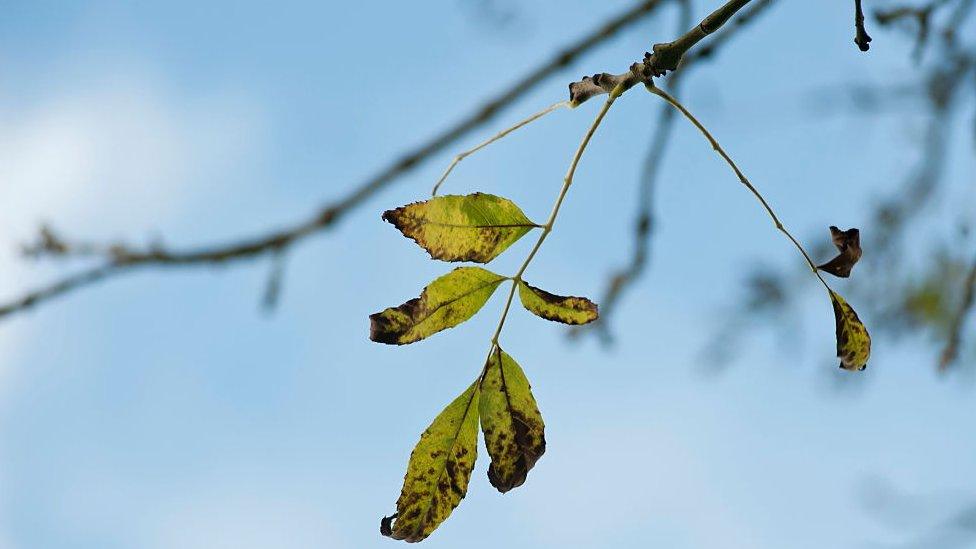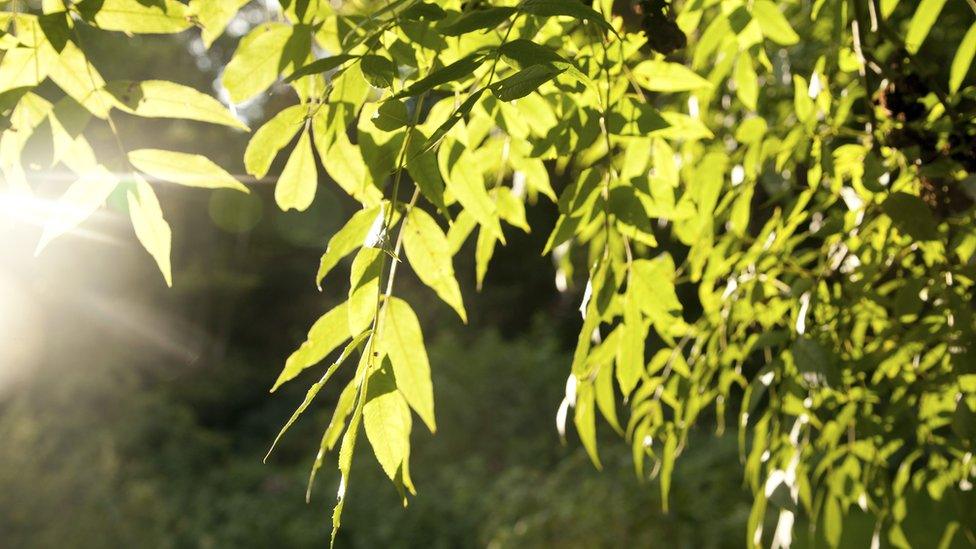Ash dieback: Ash woodlands 'may flourish once again'
- Published
- comments

An epidemic of ash dieback is devastating forests
Scientists say there is hope that some ash forests will be able to survive a devastating tree disease.
Surveys around Europe reveal mortality rates from ash dieback as high as 70% in woodlands and 85% in plantations.
A previous study found almost all ash trees could be wiped out.
The disease has swept across Europe over the past 20 years, causing widespread damage to woodlands. In many cases the fungus will eventually kill infected plants.
"Although the numbers seem grim, the percentage of trees that are still alive is encouraging from a long-term perspective," said Prof Richard Buggs, of Royal Botanic Gardens Kew and Queen Mary University of London.
"If this survival is due to heritable resistance, then conservation policies targeting breeding programs or natural selection may allow ash populations to flourish once again."

Common ash is found across Europe
The researchers pulled together surveys of ash dieback across Europe, including England, Ukraine, Scandinavia and the Baltic States. They found that even in forests that had been exposed to the disease for 20 years, not all trees were lost.
"Although we may witness terrible devastation of ash woodlands in Europe, our grandchildren may see viable ash populations," said the researchers.
There is typically a delay of 10 years from the disease entering the country to the widespread death of ash trees. This means that in the UK, the full extent of ash dieback will not become clear until 2022.
The study is published in the journal Plants, People, Planet, external.
Follow Helen on Twitter, external.